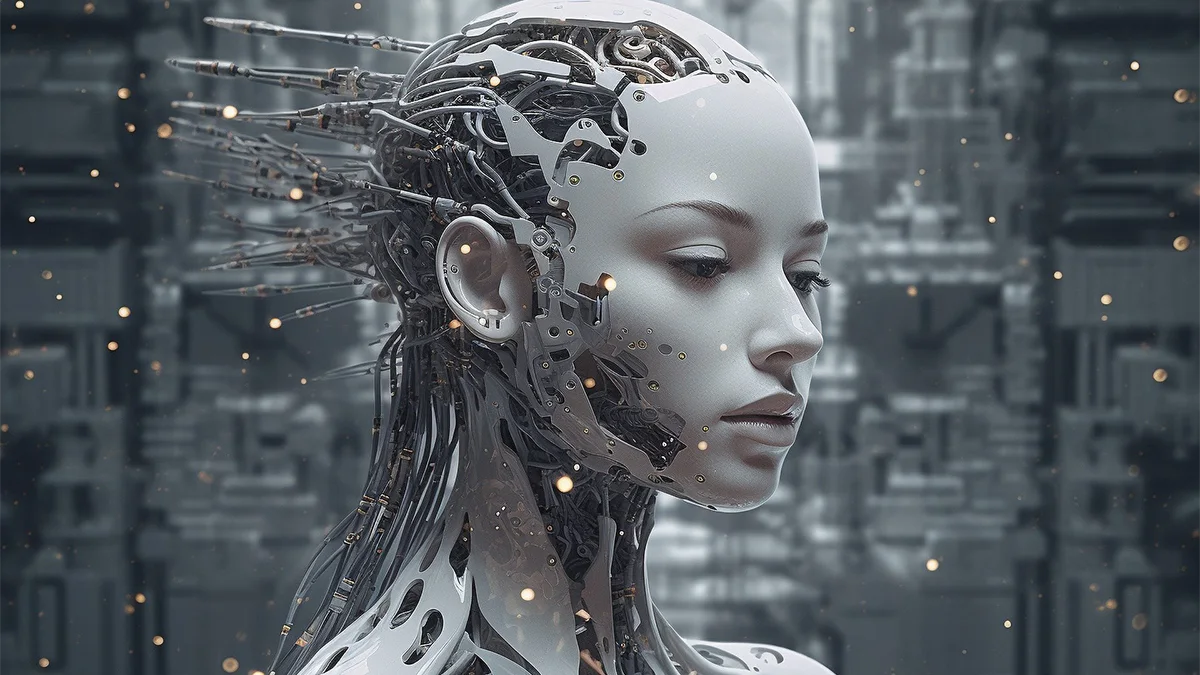
Although it’s early to be making predictions with any real confidence, it seems fair to say that the biggest debate of the second half of this decade will be over the development and use of AI. Even if you are one of the increasingly small number of people without an opinion on the issue, it’s a growing likelihood that you’re going to be pushed into taking a side within the next few years, as AI becomes more and more a topic of conversation in ever more fields.
When we say “pick a side”, that may be underselling the debate, because the increasing adoption of artificial intelligence is showing that the topic is more nuanced and much, much more wide-ranging than we would have thought even a year ago. For many of us, to some extent our position on the matter is based on vibes as much as anything. We have an instinct that it could be useful, but needs to be regulated; or we feel that it is a threat to jobs and needs to be controlled; or, we worry that its adoption will lead to the eventual extinction of the human race.
What’s clear is that as this debate continues, a binary Yes/No position on AI and its use in business among other areas isn’t really going to be enough in the coming years. We don’t just need to be asking whether AI is good or bad. There are a range of other questions we need to answer for ourselves to arrive at an informed position on adopting the technology. Some of those questions we will now look at, below:
What do we mean by “AI”?

Artificial intelligence has existed in some way for centuries, with the existence of programmable computers – the forerunner of modern AI – arriving in the 1940s. So you can already see why simply being for or against AI is an insufficient analysis. Instead, we need to ask what people mean when they say “AI” – because that can change the answer significantly.
As often as not in 2024, when people talk about AI they increasingly mean generative AI – the form of the technology that creates what we might call “content”. This could be people using prompts to create amusing pictures or news articles. And there is some justification for being dubious about its adoption – widespread use of generative AI may have profound implications for the environment, and there are ethical questions over using it to create images that could be used in any number of nefarious ways.
If we’re talking about a more reactive form of AI, such as discussing the benefits of chatbot for website owners, then the debate may be a lot less charged. People will still have their own opinions on whether or not it is a good idea, but its implications are not as wide-ranging and the argument can be less confrontational. If you are advocating for or against AI, the first thing to get straight is what kind of AI you are talking about.
What do we want AI to do?

If we are discussing the moral and ethical questions around AI, the questions do need to be framed more completely. Is it a good idea to use AI to carry out work that was being done by humans? Maybe; it depends what that work is, and the question really cannot be answered without first knowing that detail. AI is not brilliant at creative work or caring. It probably never will be, and it’s hard to see a way that it can be developed to change that. But AI does have the potential to make the future more exciting for workforces.
Should you use AI to come up with the content for your website? Probably not. Some element of creating exciting content is that the creator can evoke a feeling and a sense memory that an AI can’t. Also, it’s very bad at checking itself, so even if you do use AI-generated content on your website you’ll need to have it proof-read and edited by humans (and at that point, why not just pay them to write the content themselves?). You also shouldn’t be considering AI to come up with treatment plans for patients, because while AI is good at working fast and in bulk, it doesn’t grasp nuances that well.
However, there are interesting implications in terms of what AI can do through automation to lift the burden on people who find that “busy work” keeps them away from what they’re best at. A lot of workers are irritated that they can’t involve themselves in drawing up plans and presentations, because they’re so busy trying to count figures in a column or code a spreadsheet. This kind of data-only work is ideal for AI, which can do it with minimum delay, freeing up thinking humans for thinking work.
How much do you know about AI?

There is a lot to be said for staying quiet when you don’t know something. It often benefits you to be honest about what you do and don’t know, and the reasons for this are clear when you think about them for a moment. If you stay quiet and let someone else fill in the gaps, you learn more. If you try to guess, or apply knowledge from one area in another where it is less relevant, you can reach a faulty conclusion and lose the opportunity to learn more. It’s a good thing to admit when you don’t know something about AI.
No small number of people believe that AI can be the answer to all of our problems. This is something we’re going to see more of in the months and years to come. Any intractable societal issue, from the delivery of healthcare to decisions on funding, will become a vacuum into which people think they can pour the benefits of AI – and the truth is, sometimes they’re going to have no more idea than you or anyone else how this would actually work.
People assume that AI is perfect for solving broad problems that mankind has not been able to get a handle on, and it is primarily for two reasons. First of all, AI feels powerful in a way that human minds are not – it can think of so many things all at once, surely it is capable of handling the bigger issues. Secondly, AI is unbiased; instead of leaving things in the hands of people who can make flawed decisions based on emotion, put them in the hands of clear-thinking AI.
This is why people who don’t know about things should stay silent, because on the first point, AI can think only about what it has been programmed to think about; it doesn’t have special knowledge that is beyond the capability of people. Secondly, AI – and algorithms in general – cannot inherently be unbiased, because it has been programmed with information given by humans. And humans, as you might have gathered, have biases. So AI is not a cure-all for intractable human problems, and we shouldn’t imagine it ever will be.
How strong can AI become?

There is one question that has perpetuated since the development of the first programmable computer, and which is asked today, although perhaps in different ways: What if the machines grow too strong and take over?
The primary answer to this question is: “They won’t.”. Humans will always be able to switch machines off, something that isn’t true in reverse. Machines will only be able to do that which they are programmed to do, therefore they will only ever be as stong as humans program them to be. A more nuanced, and more useful, question is: “How much power do we give to AI?”. And in answer to this, the issues we have already covered are worth looking back to. AI can be beneficial for counting tasks and bulk programming that would take humans too long to do. But it’s never going to “go into business for itself”, because it doesn’t have any motivation beyond what it is prompted to have.
So why, then, do people claim that AI can be an existential threat in the wrong hands? That’s a question that would take another thousand words, at least, to answer in full. But there is a genuine case to be made that giving too much responsibility to AI could end with decisions being made that put humanity on a war footing, or with resources being wasted, and this in turn leads to genuine existential threat. This isn’t something that you need to worry about if you are simply wondering how to use AI in your business, but it is something to think about when considering the ultimate strengths of AI.
The AI debate is expansive, and continues to grow. As time goes on, it will be impossible not to have an opinion on the issue. When considering what your opinion is, it is well worth first of all asking yourself which questions you’re actually answering. This is a debate that’s not going to go away.




